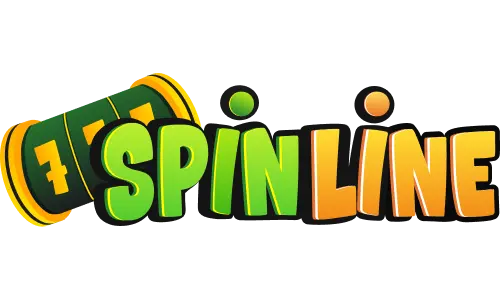Introduction: Why Casino Licensing Jurisdictions Matter
When venturing into the world of online gambling, few factors are as important as understanding the impact of casino licensing jurisdictions on your player rights. The jurisdiction that licenses and regulates an online casino not only influences the fairness and safety of the games but also determines your protections as a player. From dispute resolution to responsible gambling tools, the standards set by these authorities can make or break your experience. In this comprehensive guide, we'll explore why casino licensing jurisdictions should be at the top of your checklist and what you need to know to stay protected.
What is a Casino Licensing Jurisdiction?
A casino licensing jurisdiction is a governmental or regulatory body that issues licenses to online casinos, authorizing them to offer gambling services within certain legal frameworks. These authorities are responsible for ensuring that operators comply with strict standards regarding fairness, security, and player protection.
Common Casino Licensing Jurisdictions
Some of the most recognized licensing jurisdictions in the iGaming world include:
- Malta Gaming Authority (MGA)
- United Kingdom Gambling Commission (UKGC)
- Gibraltar Regulatory Authority
- Curacao eGaming
- Alderney Gambling Control Commission
- Isle of Man Gambling Supervision Commission
Each jurisdiction sets its own rules and standards, which can vary significantly in terms of player protection, dispute resolution, and overall trustworthiness.
How Casino Licensing Jurisdictions Affect Your Player Rights
The main keyword, casino licensing jurisdictions, isn't just a technicality—it's the backbone of your rights and safety as a player. Here's how the choice of jurisdiction can influence your online casino experience:
1. Player Protection Standards
Top-tier jurisdictions, such as the UKGC and MGA, require operators to adhere to rigorous anti-fraud policies, transparent payout rates, and regular independent audits. As a player, this means you can expect fair games and robust security for your personal and financial data. Lesser-known jurisdictions might not enforce such strict standards, increasing the risk of unfair or unsafe practices.
2. Dispute Resolution Mechanisms
When issues arise—such as delayed payouts or unfair game results—well-regulated jurisdictions provide clear, accessible channels for player complaints and dispute resolution. Authorities like the UKGC or MGA often act as mediators, ensuring disputes are handled fairly. In contrast, some offshore jurisdictions may lack these mechanisms, leaving players with little recourse if something goes wrong.
3. Responsible Gambling Measures
Jurisdictions with strong regulatory oversight require casinos to offer tools and support for responsible gambling. Features like self-exclusion, deposit limits, and access to problem gambling resources are mandatory in places like the UK and Malta. Weaker jurisdictions may not prioritize these measures, potentially putting vulnerable players at risk.
4. Payment and Withdrawal Protections
The best licensing authorities mandate that player funds be kept in segregated accounts, separate from the casino’s operating funds. This ensures your deposits and winnings are protected, even if the casino faces financial difficulties. In less regulated markets, there’s a risk that your funds could be mismanaged or inaccessible in the event of insolvency.
Comparing Major Casino Licensing Jurisdictions
Not all casino licensing jurisdictions are created equal. Here’s how some of the leading regulators stack up when it comes to safeguarding your rights:
Malta Gaming Authority (MGA)
The MGA is renowned for its strict licensing requirements and commitment to player protection. Casinos licensed by the MGA must pass extensive background checks, undergo regular audits, and provide transparent terms and conditions. The MGA also offers a formal complaints process, giving players a trusted avenue for dispute resolution.
United Kingdom Gambling Commission (UKGC)
The UKGC is considered one of the most respected and stringent regulators worldwide. Its focus on responsible gambling, data protection, and anti-money laundering helps ensure a safe and fair environment for players. The UKGC’s rigorous enforcement means that non-compliant operators risk heavy fines or license revocation.
Curacao eGaming
Curacao is a popular licensing jurisdiction due to its low costs and tax benefits for operators. However, its regulatory standards are less robust than those of the MGA or UKGC. While many reputable casinos operate under Curacao licenses, players should exercise caution, as the authority offers limited dispute resolution and oversight.
Gibraltar Regulatory Authority & Alderney Gambling Control Commission
Both Gibraltar and Alderney have established themselves as reputable regulators, with strong player protection measures and transparent operations. They require licensees to adhere to high standards similar to those of the MGA and UKGC, including regular inspections and secure handling of player funds.
Risks of Playing at Unlicensed or Poorly Licensed Casinos
Choosing a casino outside reputable licensing jurisdictions can expose you to significant risks:
- Lack of player protection: No assurance of fair games, secure transactions, or transparent practices.
- No recourse for complaints: Disputes may go unresolved, leaving you without support.
- Increased risk of fraud: Weak oversight can attract rogue operators and scams.
- Financial insecurity: Your funds may not be protected or recoverable.
Always check for a valid license and verify it on the relevant regulator’s website before depositing money or sharing personal information.
How to Check a Casino’s Licensing Jurisdiction
Most legitimate online casinos display their licensing information at the bottom of their homepage. To ensure authenticity:
- Look for the regulator’s logo (e.g., MGA, UKGC, Curacao eGaming).
- Click the logo or link to view the official license certificate.
- Visit the regulator’s website and enter the casino’s name or license number to confirm validity.
If licensing information is missing, vague, or cannot be verified, consider it a red flag and look for another platform.
What to Do If Your Player Rights Are Violated
If you encounter issues such as unfair treatment, withheld winnings, or lack of response from the casino, take the following steps:
- Contact the casino’s customer support and keep a record of your correspondence.
- Escalate the issue to the licensing authority using their official complaints process.
- Seek advice from independent gambling advocacy groups if the regulator fails to assist.
Remember, your success in resolving disputes often depends on the strength and reputation of the licensing jurisdiction involved.
Conclusion: Choose Wisely for Maximum Protection
The impact of casino licensing jurisdictions on your player rights cannot be overstated. Your choice of where to play shapes every aspect of your gambling experience, from security and fairness to dispute resolution and responsible gaming. Before registering at any online casino, always verify its licensing credentials and choose platforms regulated by reputable authorities such as the UKGC, MGA, or similar. Your rights, security, and peace of mind depend on it.
Have you ever experienced differences in player support or security when playing at casinos licensed in different jurisdictions? Share your story or ask questions in the comments below!





